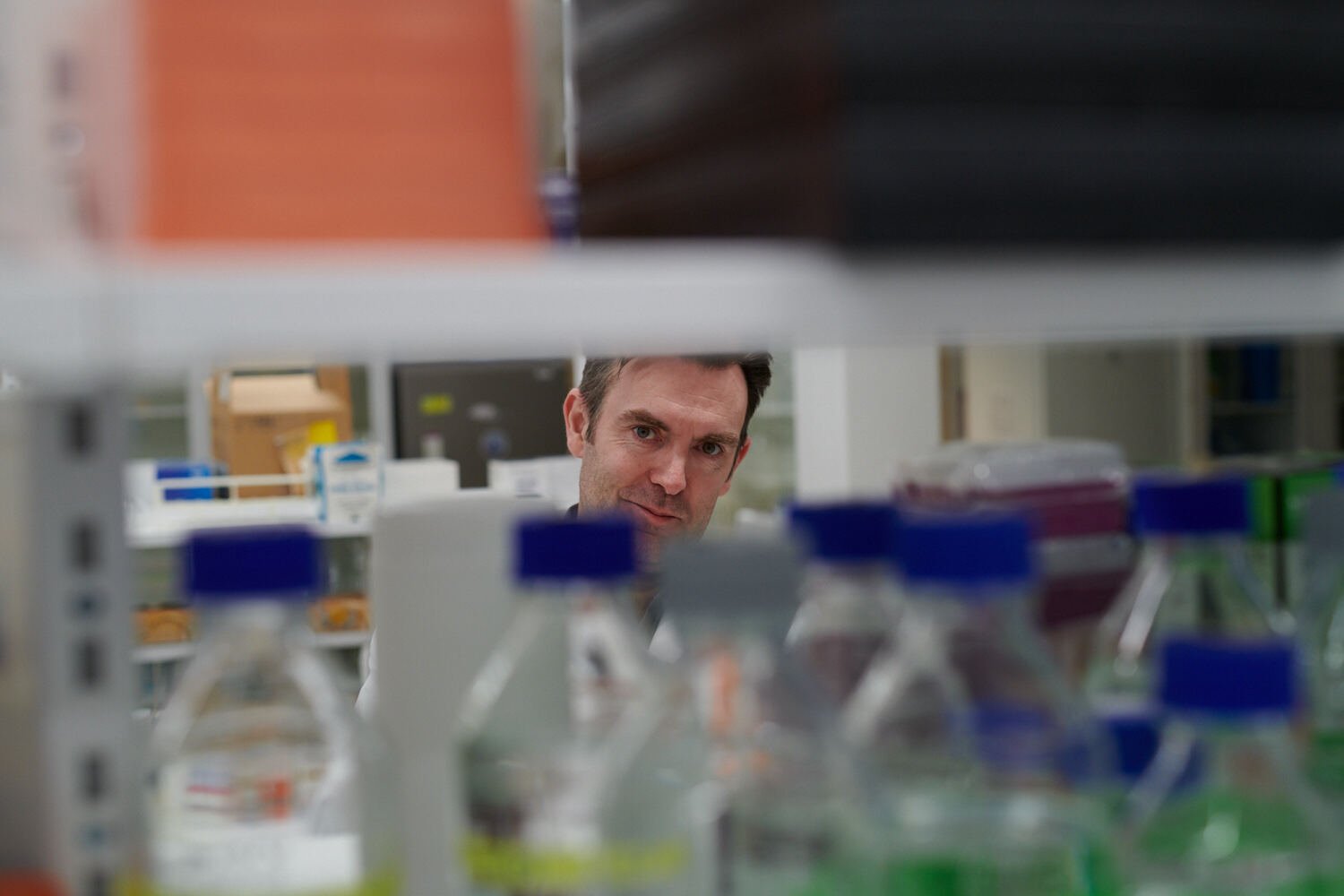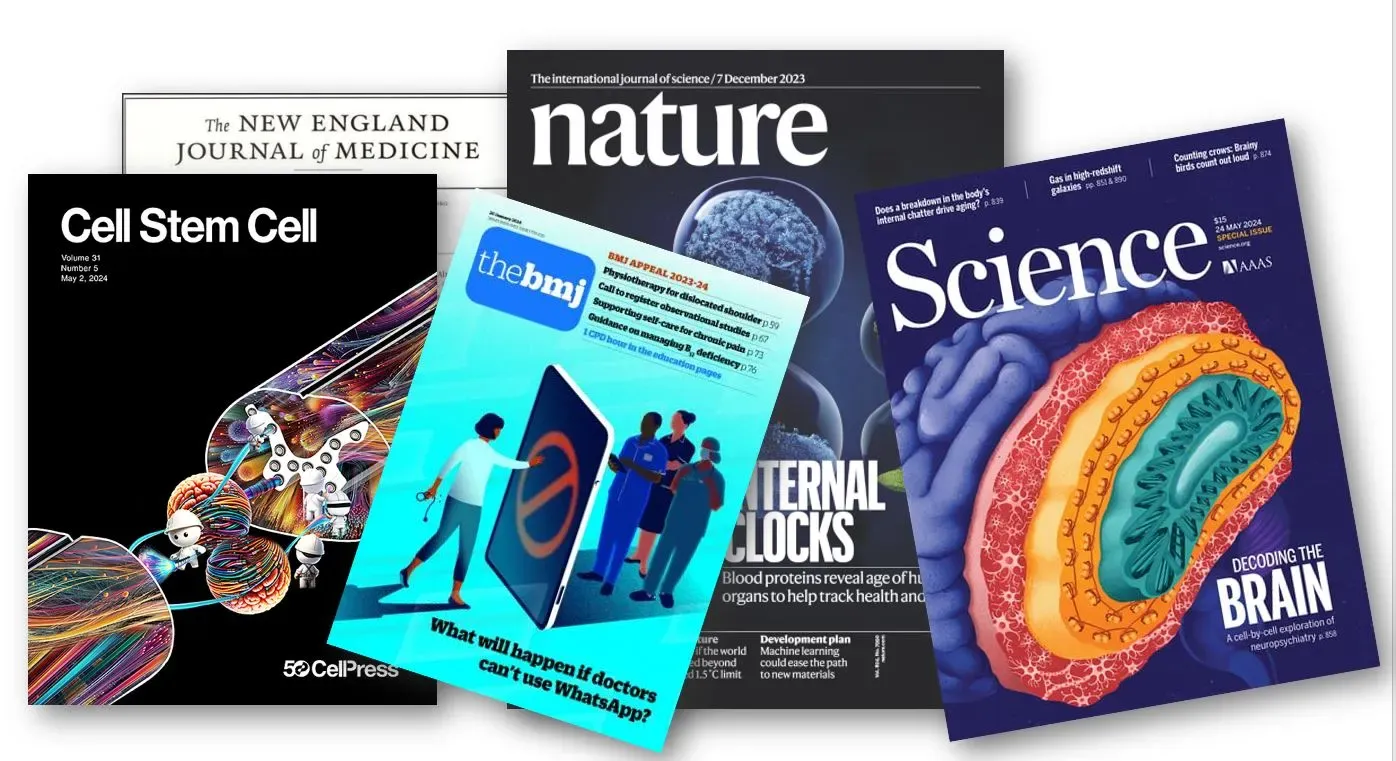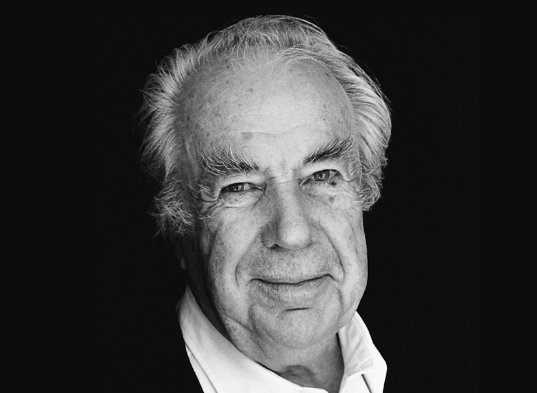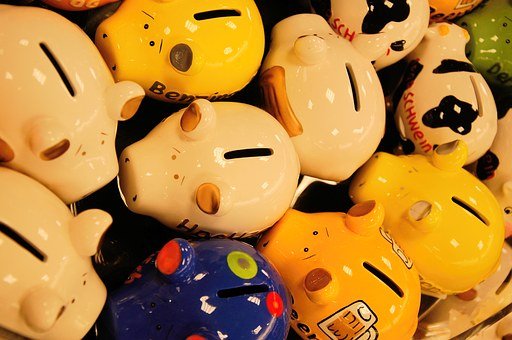Research in numbers
Research accounts for 85 percent of Karolinska Institute’s total annual revenue, and the research area’s income amounted to SEK 6,980 million in 2024. External grants correspond to 55 percent of research income. Researchers at Karolinska Institutet published 7,200 scientific articles in 2024, of which 90 percent are in collaboration with researchers from other organisations in Sweden and internationally.
 Photo: Erik Flyg
Photo: Erik FlygBriefly about KI's research
How many researchers do we have at KI and what type of research are they conducting? How much money is invested in research at the university and where does the money come from? Find the answers to simple questions about KI's research.
 Photo: N/A
Photo: N/ATop publications
Current scientific articles in which our researchers participated and which have been published in highly ranked journals are listed here. The selection is based on the journals' citation rate corresponding to the top five percent of all articles in the Medline database.
Contacts on research numbers
Some of our Swedish funding bodies

The Wallenberg foundations
The Wallenberg foundations, fronted by the Knut and Alice Wallenberg Foundation (KAW), are among the largest private research funders in Sweden.

The Erling-Persson Foundation
The Erling-Persson Foundation supports projects in science and education, as well as the development of children and young people. The foundation was created in memory of Erling Persson, the founder of the global company H&M.

Other Swedish organisations supporting KI
Much of the research at KI is financed by Swedish research councils, and a large number of private foundations and non-profit fundraisng organisations, with the Swedish Cancer Society in the lead position.
Some of our international funding bodies

ERC grants
The European Research Council (ERC) promotes research of the highest quality through long-term financing. KI has been successfull in achieving these prestigious grants.

Marie Curie grants
The EU Commission's Marie Skłodowska-Curie Actions (MSCA) programmes are addressed to research career development, on an individual level and collaborative. Find ongoing activities at KI with this type of funding.

EU-collaborative projects
In recent years, KI researchers have been participating in hundreds of collaborative research projects funded by the EU. Many of these projects have been coordinated at KI.

US research funding
KI is the largest recipient of external research funding from the United States among Swedish universities. Funding is obtained from both federal agencies and private foundations.
